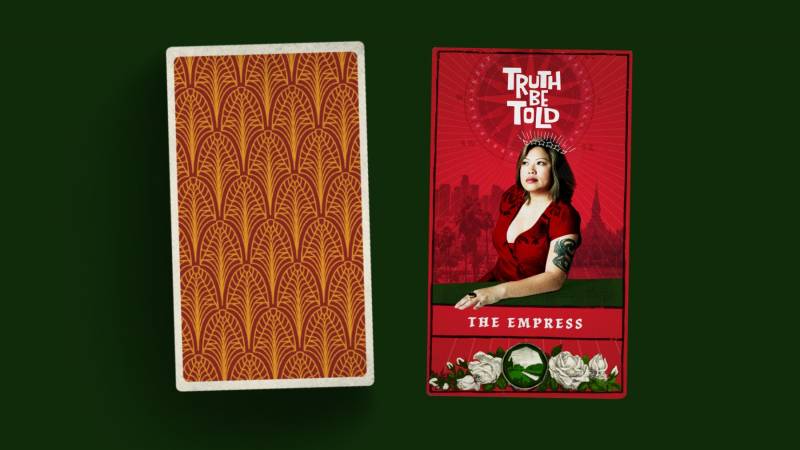In the episode, Vilaysack addresses the trauma immigrant and refugee families experience, which is passed on to children through culture and family environment. For both Vilaysack and our question asker, love from their mothers has existed amid addiction and abuse. Vilaysack says some hard lessons she has learned include the need to be a good mother to yourself, understanding parents are not the gatekeepers to culture and that mothers are flawed individuals.
Therapy has been essential, Vilaysack says, in order to mourn the loss of the mother-daughter relationship she wished for but never really had.
“It’s truly a rewiring that needs to occur and it has to do with dealing with your side of the fence first,” Vilaysack says. “Meaning, going to therapy, doing the hard work on yourself before you can get to a place where things don’t affect [you] like they did before. Where things don’t cut anymore. You have to help yourself first before you can help other people.”
Vilaysack offers this mind exercise she’s done herself to start the process of mothering yourself and self-healing:
1. Revisit a difficult memory that you have with your mom and your younger self.
2. Picture that memory and series of events.
3. Enter that memory as your adult self.
4. Step in front of your younger self and protect that version of you.
5. Your adult self tells your mom to go away for a little bit.
6. You hold your younger self, console her and tell her, “It’s not your fault.”
7. Do not deny what happened but let your younger self know that it’s going to be OK.
8. Take your younger self into a room where she feels safe and hand her a stuffed animal she loved.
9. Take a picture of this image.
Vilaysack says this mind exercise is not to erase the past but heal the open wounds that still exist with your own love for yourself. For more context, listen to Vilaysack talk about the exercise in the episode. In addition to therapy and self-mothering, Vilaysack says it’s important to be surrounded by people who can affirm and love you how you want to be loved.
But, what if you get to all of this and your decision is not to have a relationship with your mother? Our Wise One affirms that’s OK – the decision is not final. “You are the architect of your life and what this relationship is going to be,” Vilaysack says.
Episode transcript can be found here.
Episode Guest:
Kulap Vilaysack, writer, actor, podcaster and director of her documentary, “Origin Story”
Recommended Reading:
On Earth We’re Briefly Gorgeous by Ocean Vuong
The Complex Relationship Between Latina Immigrant Mothers and Their Daughters by Nia Ita
The Strained Relationship Between Black Mothers and Their Daughters by Arah Iloabugichukwu
12 Ways to Cope With Your Latina Mom and Her Difficulties: A Guided Journal by Jasmine Cepeda
It Didn’t Start With You: How Inherited Family Trauma Shapes Who We Are and How to End the Cycle by Mark Wolynn
The Emotionally Absent Mother: A Guide to Self-Healing and Getting the Love You Missed by Jasmin Lee Cori
Mothering Across Borders: Narratives of Immigrant Mothers in the United States by Heather Hewett
Hood Feminism: Notes From the Women That a Movement Forgot by Mikki Kendall
Native Country of the Heart: A Memoir by Cherríe Moraga
The Joy Luck Club by Amy Tan
Recommended Listening:
The Secret Lives Of Our Immigrant Parents from The Mash-Up Americans
